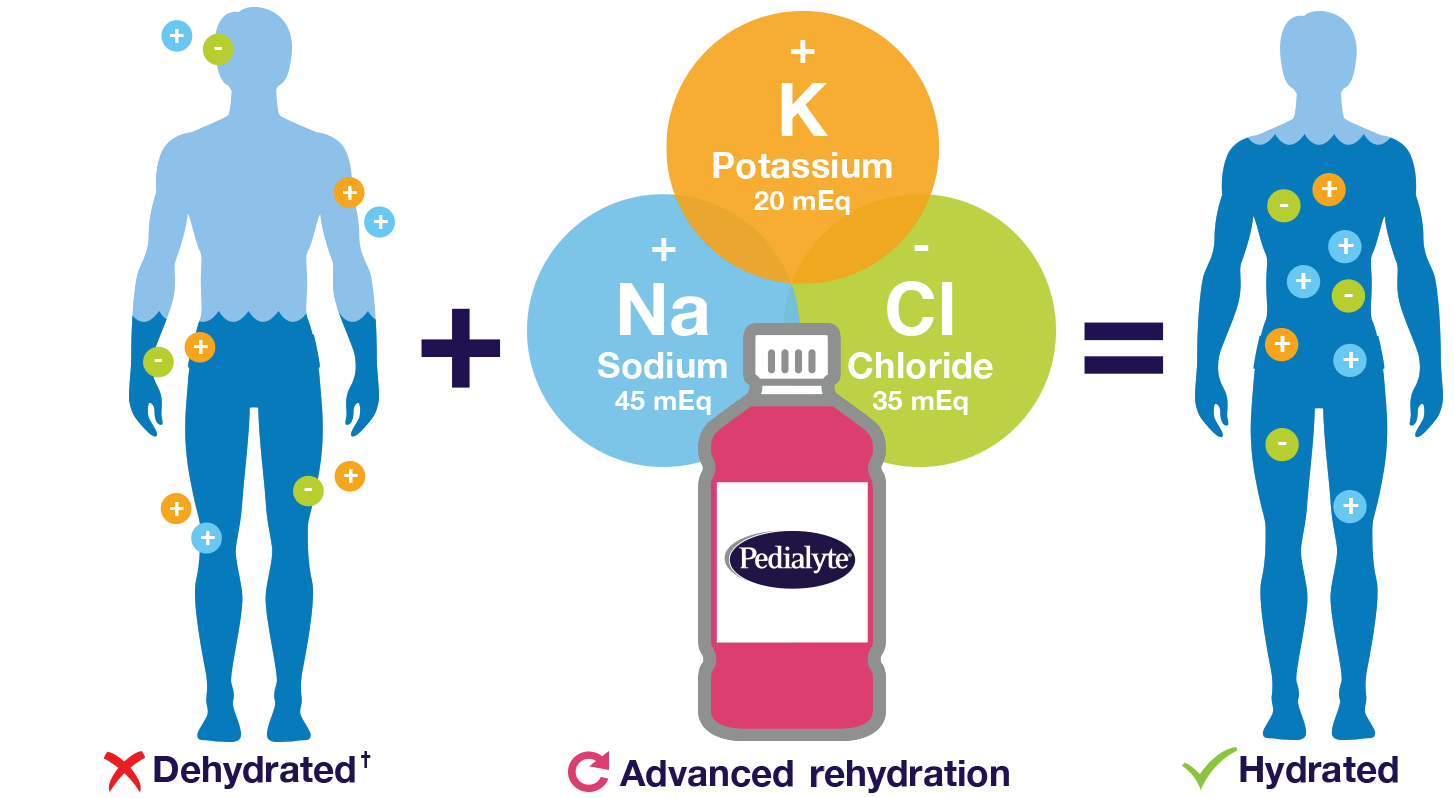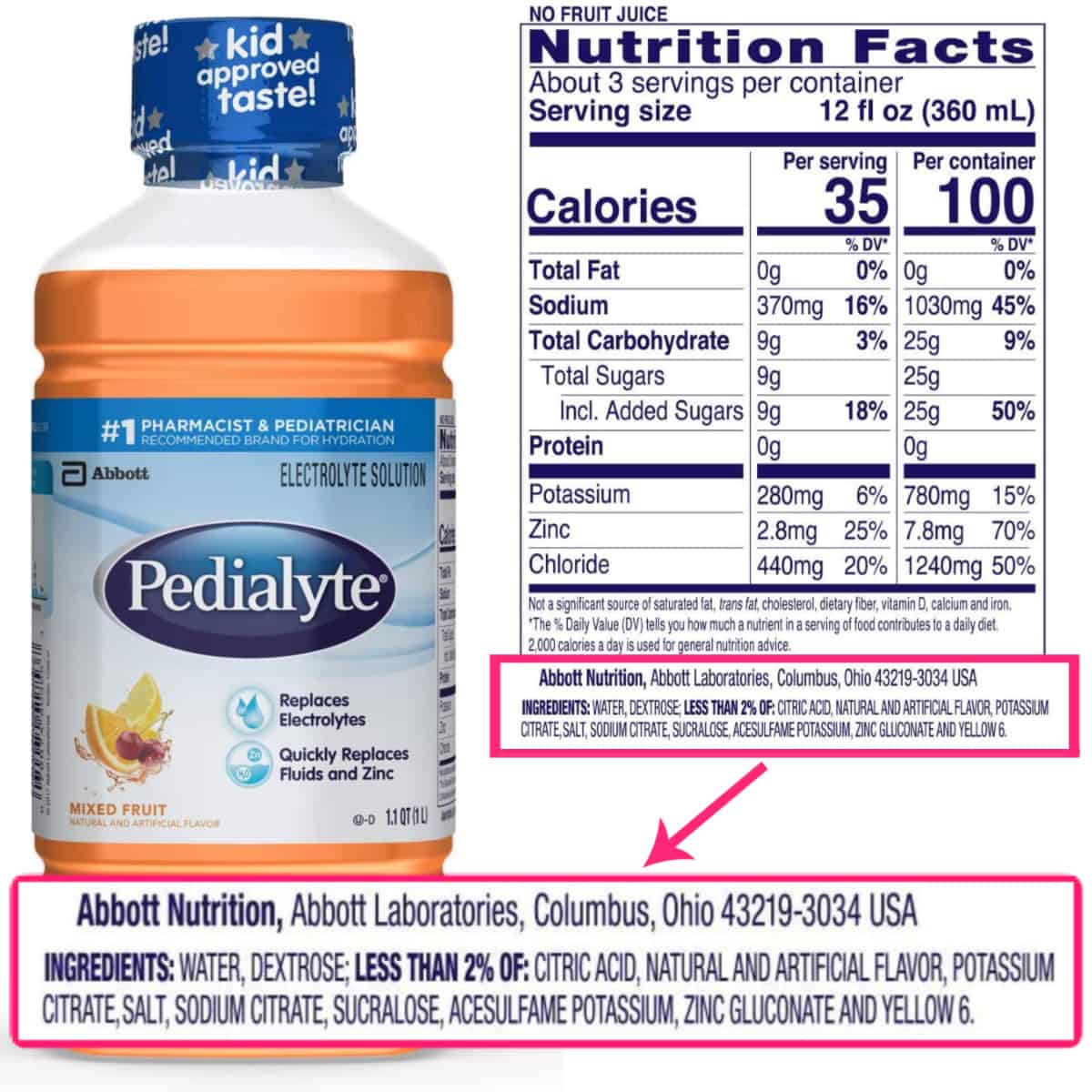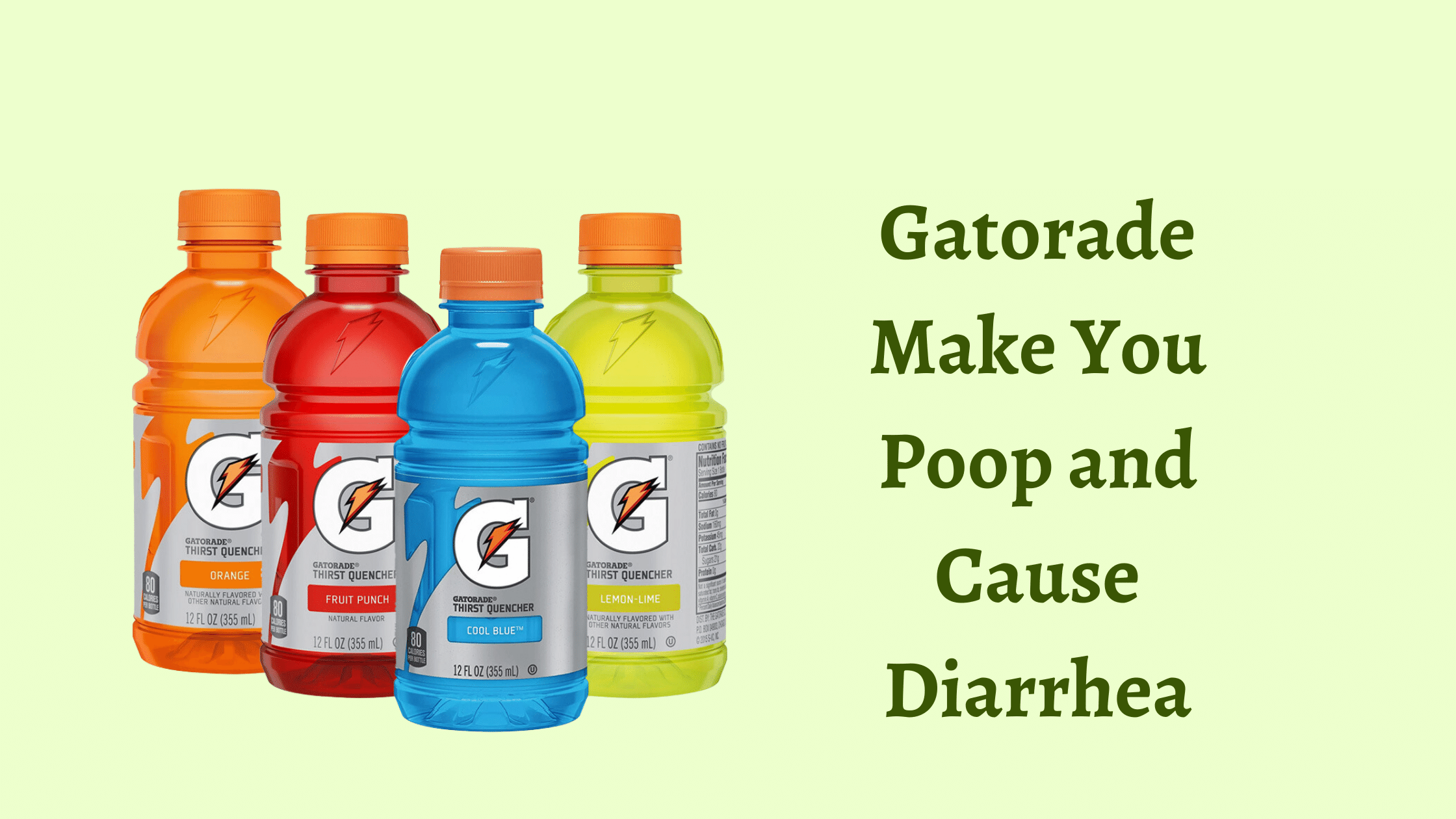Ever puzzled by the notably salty taste of your electrolyte drink? You’ve likely landed on this page in a quest to understand why electrolyte drinks taste salty, particularly Pedialyte. It's a common observation, and while it might not be the most pleasant flavor profile, that distinct saltiness is not an accident; it's a crucial component of its effectiveness.
Gatorade and Pedialyte, two widely recognized hydration solutions, often leave a distinct salty sensation on the palate. Unlike beverages meant merely for enjoyment, Pedialyte strikes a deliberate balance between sweet and salty, which is essential for its functionality. This composition shifts how we perceive its taste, prioritizing rapid rehydration over pure palatability. As an avid researcher in sports nutrition and a workout fanatic, I'm eager to delve into the science behind this unique taste and why it's so vital for your body's recovery.
Table of Contents
- Understanding Electrolytes: The Body's Electrical Conductors
- The Science Behind Why Pedialyte Tastes Salty
- Pedialyte's Purpose: More Than Just a Drink
- Why Children (and Adults) Need Pedialyte's Salty Profile
- The Delicate Balance: Sweet, Salty, and Functional
- Addressing Taste Preferences: Making Pedialyte More Palatable
- When to Reach for Pedialyte: YMYL Considerations
- Beyond the Salt: A Holistic Approach to Hydration
Understanding Electrolytes: The Body's Electrical Conductors
Before we dive into the specific question of "why is Pedialyte salty," it's crucial to grasp what electrolytes are and why they are so vital for our bodies. Electrolytes are minerals that carry an electric charge when dissolved in water, such as blood. They are found in your blood, urine, tissues, and other body fluids. These charged particles are fundamental for numerous bodily functions, including maintaining fluid balance, regulating blood pressure, muscle contraction, and nerve function. Without a proper balance of electrolytes, your body simply cannot function optimally.
When your body loses enough of these electrolytes along with fluids, typically through sweating, vomiting, or diarrhea, you become dehydrated. This state can lead to a cascade of problems, from mild fatigue and dizziness to severe, life-threatening conditions if not addressed promptly. This is precisely where solutions like Pedialyte step in, designed to rapidly replenish these lost essential minerals.
Sodium: The Star of the Salty Show
When you ask, "why does Pedialyte taste salty?" the answer largely revolves around one key electrolyte: sodium. Sodium is the most abundant electrolyte in the body and plays a critical role in maintaining fluid balance both inside and outside cells. It's essential for nerve impulses, muscle function, and regulating blood volume and pressure. The slight saltiness you taste is directly due to the presence of sodium, primarily in the form of sodium chloride (common table salt).
When you're dehydrated, your body has lost significant amounts of sodium. Simply drinking plain water won't always be enough to rehydrate effectively, especially in cases of severe fluid loss. Water alone can dilute the remaining electrolytes in your body, potentially worsening the imbalance. Pedialyte contains sodium, an essential electrolyte that helps with rehydration by facilitating water absorption in the intestines. This mechanism is central to the effectiveness of oral rehydration solutions (ORS), which Pedialyte is based on.
Chloride and Potassium: Sodium's Essential Partners
While sodium is the primary reason why Pedialyte tastes salty, it's important to remember that Pedialyte has 3 key electrolytes for hydration: sodium, chloride, and potassium. Chloride often works in tandem with sodium to maintain fluid balance and blood pressure. It's also a crucial component of digestive fluids. Potassium, on the other hand, is vital for heart function, muscle contraction, and maintaining fluid balance within cells.
These electrolytes work synergistically. The presence of chloride helps the body absorb sodium more efficiently, while potassium ensures that the fluid balance is maintained both inside and outside the cells. Without this balanced trio, the rehydration process would be far less effective. So, while the saltiness is mainly from sodium, the overall electrolyte solution in Pedialyte is a carefully formulated blend designed for optimal recovery.
The Science Behind Why Pedialyte Tastes Salty
The core reason why Pedialyte is salty is rooted in the principles of oral rehydration therapy (ORT). ORT is a simple, effective treatment for dehydration caused by diarrhea or vomiting. It involves drinking a solution of water, salts, and sugar. The specific formulation of Pedialyte is designed to leverage a physiological process known as co-transport, where glucose (sugar) helps the body absorb sodium and, consequently, water more efficiently in the small intestine.
Electrolyte drinks are salty because they contain sodium chloride (salt) to replenish lost sodium through sweating or illness. This isn't just about replacing what's lost; it's about creating the right osmotic gradient to pull water back into the body's cells and bloodstream. The amount of sodium in Pedialyte is carefully calibrated to achieve this optimal absorption, which inevitably results in a noticeable salty taste.
Osmosis and Optimal Rehydration
Understanding osmosis is key to understanding why Pedialyte's salty taste is so important. Osmosis is the movement of water across a semi-permeable membrane (like your cell walls) from an area of higher water concentration to an area of lower water concentration. In simpler terms, water follows salt. When you consume a solution like Pedialyte, the sodium and sugar create a specific concentration in your gut that facilitates the rapid absorption of water into your bloodstream.
Pedialyte classic liters are an advanced hydration solution specially formulated with an optimal balance of sugar and electrolytes needed to help replenish vital fluids and minerals. This precise balance is what makes it so effective. If the solution were too dilute (not salty enough), it wouldn't create the necessary osmotic pull. If it were too concentrated, it could potentially draw water out of your cells, exacerbating dehydration. The salty taste is a direct indicator of this carefully engineered osmotic balance.
Pedialyte's Purpose: More Than Just a Drink
It's crucial to distinguish Pedialyte from regular sports drinks or even fruit juices. While some sports drinks contain electrolytes, their primary purpose often includes providing energy through higher sugar content for athletic performance. Pedialyte, on the other hand, is specifically formulated as a medical food for rehydration. Its main goal is to prevent or treat dehydration caused by illness, not just to quench thirst or provide energy during exercise.
Pedialyte helps hydrate you quickly and replenish your electrolytes. That makes it ideal for children who are sick and need to retain their fluid levels, as well as adults experiencing significant fluid loss. Its formulation is based on the World Health Organization's (WHO) guidelines for oral rehydration solutions, which prioritize electrolyte replacement over flavor. This is why its taste profile is geared towards functionality rather than enjoyment, explaining why Pedialyte tastes salty and not like a typical beverage.
Why Children (and Adults) Need Pedialyte's Salty Profile
Children, especially infants and toddlers, are particularly vulnerable to dehydration due to their smaller body size and higher metabolic rates. Vomiting and diarrhea can quickly lead to dangerous levels of fluid and electrolyte loss in young children. For this reason, Pedialyte is often recommended by pediatricians. While adults may be able to deal with salty orange juice or other odd tastes, children will be much less understanding of the odd taste of a rehydration solution.
This presents a challenge: how to get a sick child to drink something that tastes salty and potentially "gross." Many parents lament, "Pedialyte tastes salty and gross to me too, I don't blame the kids that don't like it (including mine)." Despite the taste, the presence of sodium is non-negotiable for effective rehydration in these critical situations. The benefits of rapid rehydration far outweigh the temporary unpleasantness of the taste, especially when dealing with the serious health risks of dehydration in vulnerable populations.
The Delicate Balance: Sweet, Salty, and Functional
Even though the saltiness is prominent, Pedialyte's formulators do attempt to balance the flavor. Unflavored Pedialyte has a slightly salty and mildly sweet taste. The drinks contain sugar, potassium, water, and salt. The sugar isn't just for taste; as mentioned, it plays a vital role in the sodium-glucose co-transport mechanism, facilitating efficient water absorption. The sweetness helps to counteract some of the strong salty notes, making it more palatable than pure saltwater, but it doesn't mask the salt completely.
The goal isn't to make it delicious, but to make it drinkable enough to achieve its therapeutic effect. The flavor may not be as gross as drinking orange juice after brushing your teeth, but it's certainly not a recreational beverage. This composition shifts how we perceive its taste, emphasizing that its primary function is rehydration and electrolyte replenishment, not refreshment or enjoyment. The slight saltiness you taste is due to the presence of sodium, but the taste is balanced with other ingredients to make it more acceptable.
Addressing Taste Preferences: Making Pedialyte More Palatable
Given the strong and often off-putting salty taste, many individuals and parents look for ways to make Pedialyte more appealing. While the core salty composition is essential, there are strategies to improve the drinking experience without compromising its effectiveness. Understanding that some people are just more sensitive to the taste is key.
One popular option is to try flavored versions of Pedialyte. While even these will have a hint of saltiness, the added fruit flavors can significantly mask the dominant salty notes. For children, especially, Pedialyte popsicles are often a game-changer. Freezing the solution can reduce the perception of saltiness and make it feel more like a treat, encouraging consumption when a liquid might be refused.
Creative Ways to Serve Pedialyte
Yes, Pedialyte can be mixed with water, juice, or even used as a base for smoothies. Adding fruits or flavor enhancers can make the taste more palatable. However, caution is advised when mixing. Diluting it too much with plain water or high-sugar juices might alter its carefully balanced electrolyte-to-sugar ratio, potentially reducing its effectiveness. If mixing, it's best to do so minimally or consult a healthcare professional for guidance.
For adults, chilling Pedialyte significantly can also improve its taste. Dehydration can affect taste perception by altering the way our taste buds function, sometimes making tastes more intense. A very cold solution might be less offensive. Some individuals also find that sipping it slowly, rather than gulping, helps to manage the taste. The key is to find a method that encourages consistent intake, as regular small sips are often more effective than large infrequent gulps when rehydrating.
When to Reach for Pedialyte: YMYL Considerations
Given its medical purpose, knowing when to use Pedialyte is important for your health and well-being (YMYL - Your Money or Your Life). Pedialyte is known for its ability to rehydrate the body and replenish electrolytes lost during illness or physical exertion. It's primarily indicated for:
- Vomiting and Diarrhea: These are the most common reasons, as they lead to rapid fluid and electrolyte depletion.
- Fever: Increased body temperature can lead to fluid loss through sweating.
- Extreme Sweating: During intense exercise, especially in hot environments, or manual labor, significant amounts of sodium and other electrolytes can be lost.
- Traveler's Diarrhea: A common ailment that necessitates rapid rehydration.
While Pedialyte is generally safe, it's not a substitute for medical attention in severe cases. If dehydration symptoms persist or worsen, or if there are signs of severe dehydration (e.g., lethargy, no urination, sunken eyes), it's crucial to seek immediate medical help. Always consult a healthcare professional, especially when dealing with infants or individuals with pre-existing health conditions, to ensure appropriate usage and to rule out more serious underlying issues.
Beyond the Salt: A Holistic Approach to Hydration
While understanding why Pedialyte is salty demystifies its taste, it also highlights the broader importance of hydration. Our bodies are composed largely of water, and maintaining fluid balance is critical for every physiological process. The electrolytes, particularly sodium, are integral to this balance. Pedialyte serves as an effective tool for specific instances of dehydration, but daily hydration should come from a variety of sources.
For everyday needs, plain water remains the best choice. For those engaging in moderate exercise, water is typically sufficient. However, for prolonged or intense physical activity, or during periods of illness, an electrolyte-rich solution like Pedialyte or a sports drink can be beneficial. The key takeaway is that the salty taste of Pedialyte is a feature, not a flaw. It's a testament to its scientifically formulated design to rapidly and effectively rehydrate your body when it needs it most.
So, the next time you take a sip of Pedialyte and notice that distinct salty flavor, remember that it's the taste of efficient rehydration at work. It's the taste of your body getting precisely what it needs to recover and restore its vital functions. Understanding "why is Pedialyte salty" transforms a potentially unpleasant taste into an appreciation for its powerful therapeutic benefits.
Did this article help you understand the science behind Pedialyte's salty taste? Share your thoughts or any personal experiences with Pedialyte in the comments below! If you found this information valuable, consider sharing it with others who might benefit from understanding the importance of electrolytes and proper rehydration.



Detail Author:
- Name : Silas Gottlieb
- Username : reuben.kunze
- Email : adele.bogan@yahoo.com
- Birthdate : 1996-04-09
- Address : 3719 Ebony Harbor Apt. 602 Port Milesshire, ND 84591-3569
- Phone : 571-558-0076
- Company : Ullrich, Kohler and Schultz
- Job : Zoologists OR Wildlife Biologist
- Bio : Ut molestias perferendis id minus aut non. Recusandae ut sit sit aperiam quis reprehenderit. Aut ut animi voluptatem sequi vero odio rerum deserunt. Sunt quo deleniti adipisci cum.
Socials
tiktok:
- url : https://tiktok.com/@rolfson1988
- username : rolfson1988
- bio : Nihil expedita consequatur maxime eum voluptatem ut.
- followers : 1967
- following : 194
linkedin:
- url : https://linkedin.com/in/elvis_id
- username : elvis_id
- bio : Aliquid velit omnis culpa illo tempora ut.
- followers : 6642
- following : 1793
instagram:
- url : https://instagram.com/elvis.rolfson
- username : elvis.rolfson
- bio : Ut dolore sunt ex maiores sed aliquam. Beatae quia provident laboriosam facere alias.
- followers : 5366
- following : 2082
twitter:
- url : https://twitter.com/rolfson1997
- username : rolfson1997
- bio : Consequatur magni ex impedit voluptas. Quia nemo quae sequi. Mollitia unde ea delectus aperiam quod quibusdam voluptas.
- followers : 5551
- following : 2700